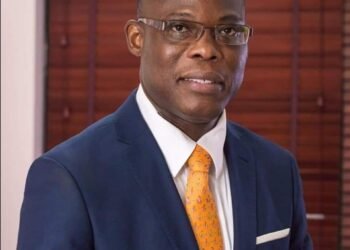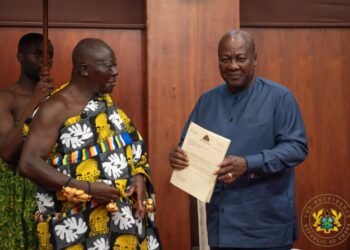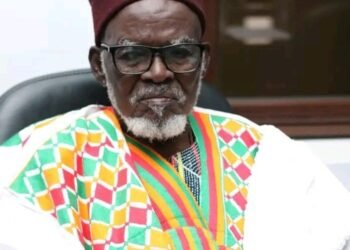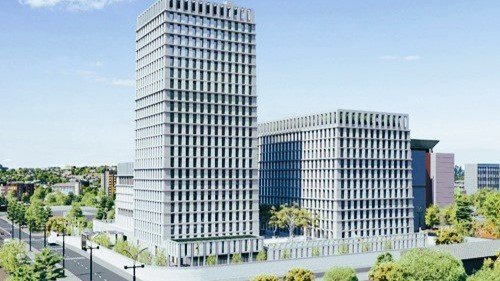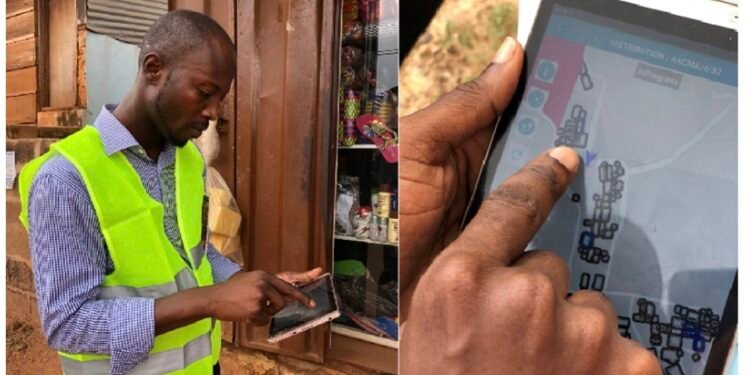President John Dramani Mahama has urged African governments to draw crucial lessons from Ghana’s recent economic turmoil and the decisive reforms that have followed, describing the country’s journey from debt default to fiscal discipline as a model for the continent.
Speaking at the Annual Conference of the African Association of Accountants General in Accra, the President said Ghana’s experience should inspire broader reflection on public financial management across Africa.
Addressing an audience of Accountants General, fiscal policymakers, and public sector managers, President Mahama noted that Accra could not have been a more fitting venue for the gathering.
He explained that Ghana’s recent economic crisis makes the country an important case study for all African nations pursuing stronger financial and governance reforms.

The President recounted the severity of the situation his administration inherited, reminding the participants that Ghana had defaulted on its debt obligations for the first time in its history. The consequences were immediate and harsh.
“You must have heard that Ghana defaulted on its debt and the credit rating agencies reduced our credit rating to junk status. We were shut out of the international capital markets completely, and we still are shut out.”
President John Dramani Mahama
Product of Multiple Years of Fiscal Slippages
President Mahama stressed that Ghana’s economic collapse did not occur in a vacuum but was the product of multiple years of fiscal slippages, excessive borrowing, and weak expenditure controls.
“Ghana’s experience must serve as a lesson to the rest of Africa, both in terms of what led us into the crisis that we found ourselves,” he cautioned. He cited a high rate of debt accumulation and chronic fiscal indiscipline as central factors that accelerated the country’s decline.

To illustrate the scale of the problem, the President highlighted a glaring instance of unchecked spending under the previous administration. He described how one ministry with an approved budget of GH¢1.9 billion managed to spend GH¢9 billion—without any authorization from the Ministry of Finance.
“They ended up, without permission from the Ministry of Finance, spending 9 billion Cedis instead of 1.9 billion Cedis. The debts just kept accumulating. Ministers could commit governments without recourse to the Ministry of Finance.”
President John Dramani Mahama
President Mahama said such practices exposed the serious structural deficiencies that had long undermined Ghana’s financial stability. He stressed that African countries must establish safeguards to prevent similar occurrences. His message was clear: fiscal recklessness is costly and unsustainable, and African economies must adopt systems that enforce discipline and accountability.
Ghana’s Recovery
Turning to Ghana’s recovery, the President highlighted the significant progress the country had made within just ten months. He explained that his administration had introduced far-reaching measures aimed at stabilizing the economy, restoring confidence, and preventing future crises.
“We have restored fiscal discipline, we have tightened our public financial management legislation, and we have also put a ceiling on how much debt can be accumulated”.
President John Dramani Mahama
Central to the reforms is a new legal framework that caps the national debt at 45 percent of GDP by 2030, limiting how much future governments can borrow. President Mahama argued that these measures are essential to prevent political cycles from driving irresponsible fiscal behaviour.

In addition, the government has implemented a mandatory requirement for all ministries, sectors, and state-owned enterprises to seek commencement approval before committing the state to any expenditure. This measure, he said, directly blocks the loophole that previously enabled ministries to bypass the Ministry of Finance and spend beyond their approved budgets.
“All that has changed and so it’s brought more discipline into the system,” President Mahama told the conference, expressing confidence that Ghana’s public sector now operates under a more accountable and predictable financial regime. He noted that the reforms are already yielding results, with government agencies demonstrating improved compliance and budgetary responsibility.
President Mahama urged other African nations to engage deeply with Ghana’s experience—both the missteps and the reforms. He expressed confidence that continued dialogue among Accountants General would strengthen the continent’s fiscal governance architecture.
“I’m sure that the Ghanaian participants will be very willing to discuss their experiences,” he said, emphasizing the value of shared lessons and collective growth. By presenting Ghana’s crisis and recovery as both warning and guide, President Mahama framed the country’s recent history as a lesson not just for Accra, but for Africa as a whole.
READ ALSO: Ghana Puts Small-Scale Mining at the Forefront of Global Gold Discourse





